Magdalena Abakanowicz
Every Tangle Of Thread And Rope
17 Nov 2022 - 21 May 2023
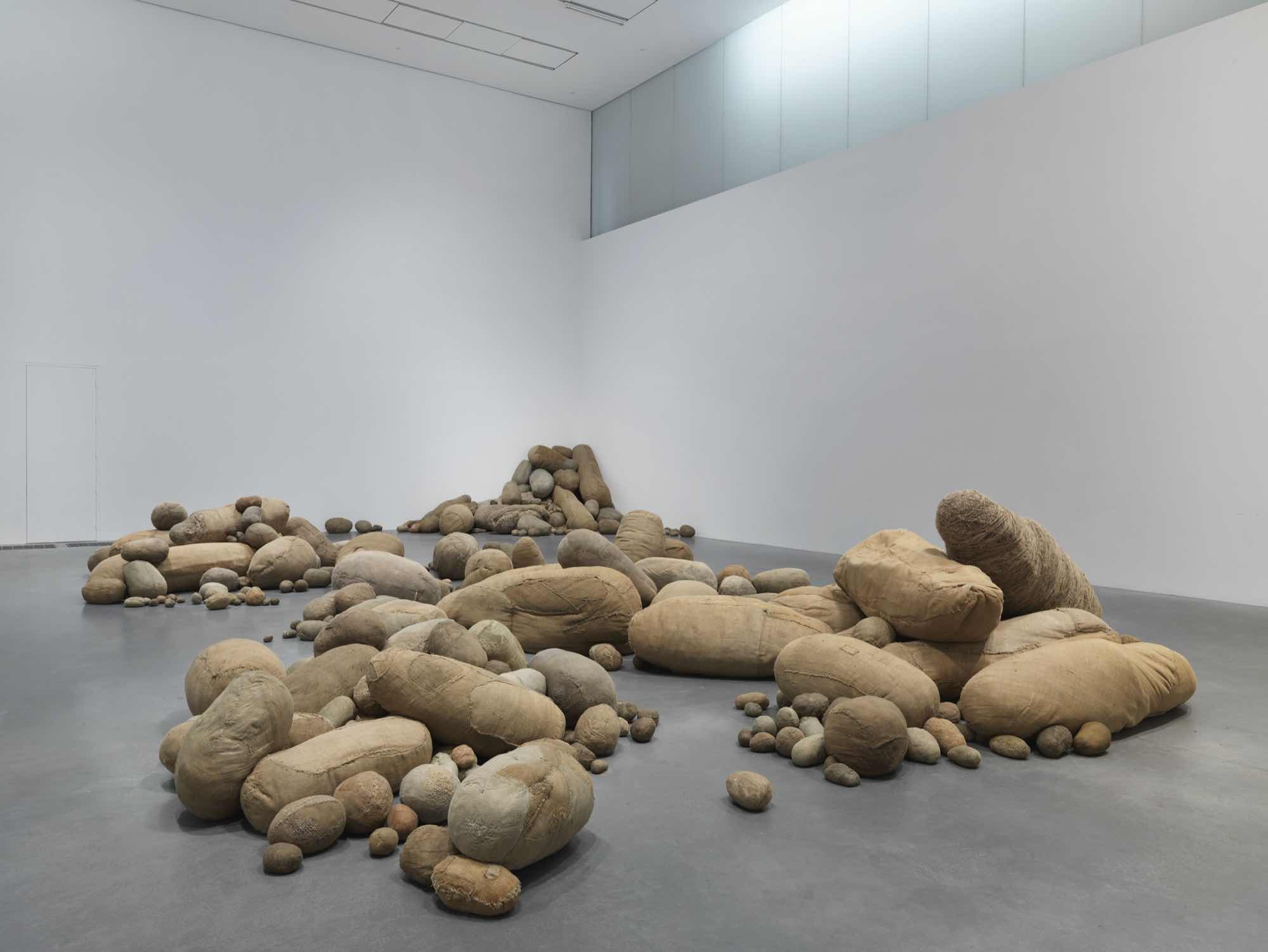
Magdalena Abakanowicz
Embryology 1978-80
Tate
All works by Magdalena Abakanowicz are © Fundacja Marty Magdaleny Abakanowicz Kosmowskiej i Jana Kosmowskiego, Warsaw.
Embryology 1978-80
Tate
All works by Magdalena Abakanowicz are © Fundacja Marty Magdaleny Abakanowicz Kosmowskiej i Jana Kosmowskiego, Warsaw.
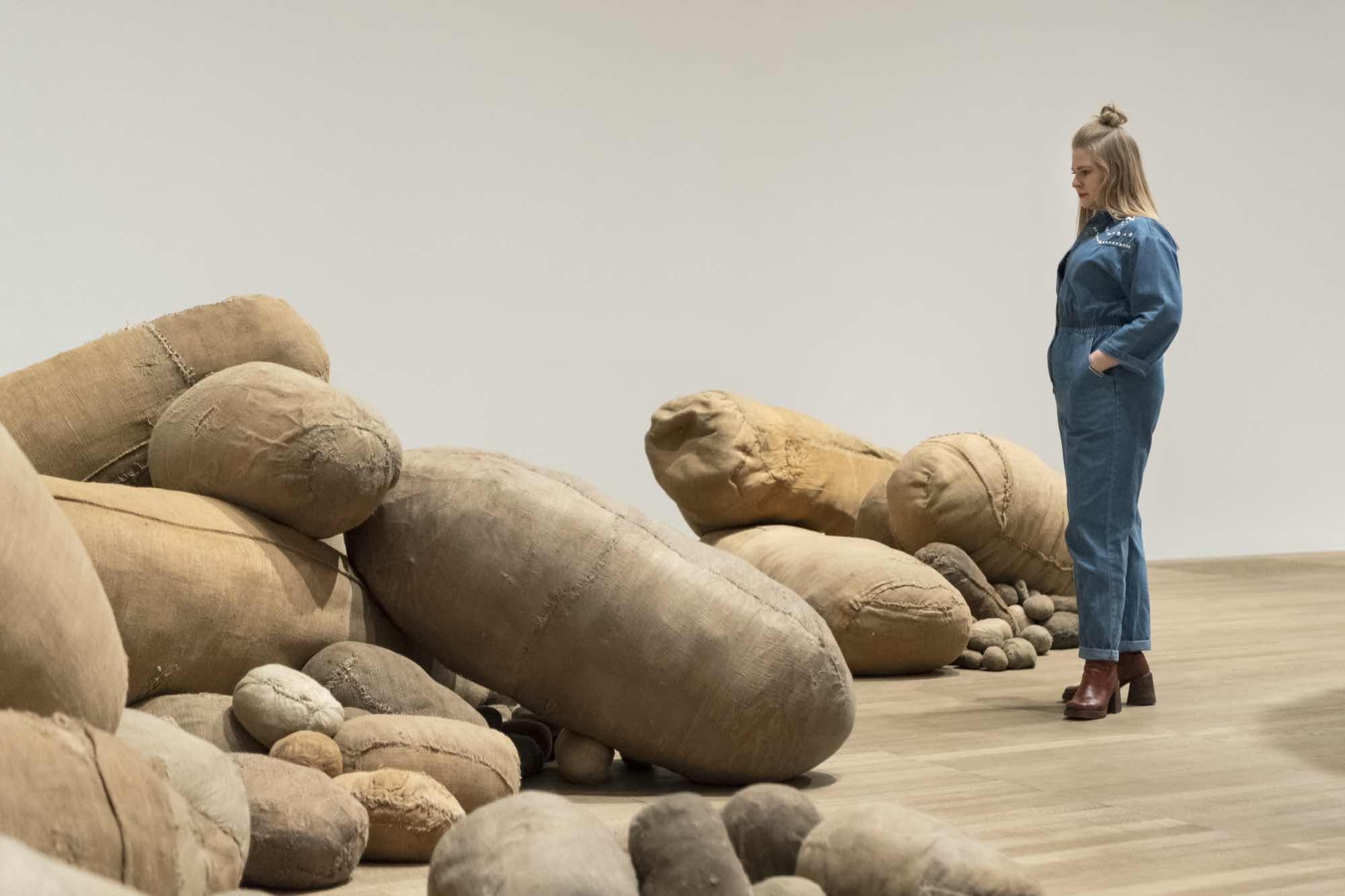
Magdalena Abakanowicz: Every Tangle Of Thread And Rope Installation View at Tate Modern 2022
Photo (c) Tate Photography, Madeline Buddo
Photo (c) Tate Photography, Madeline Buddo
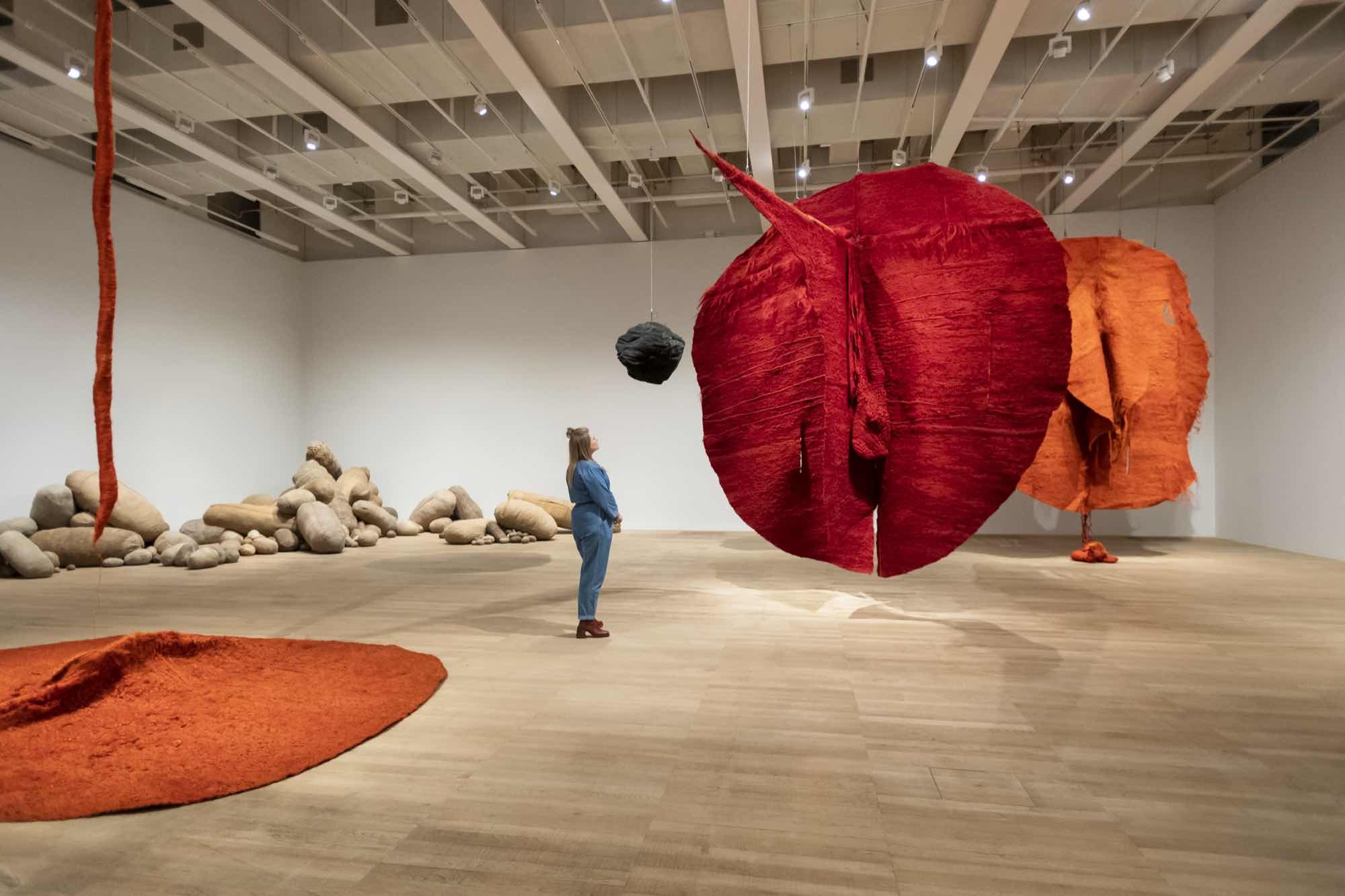
Magdalena Abakanowicz: Every Tangle Of Thread And Rope Installation View at Tate Modern 2022
Photo (c) Tate Photography, Madeline Buddo
Photo (c) Tate Photography, Madeline Buddo
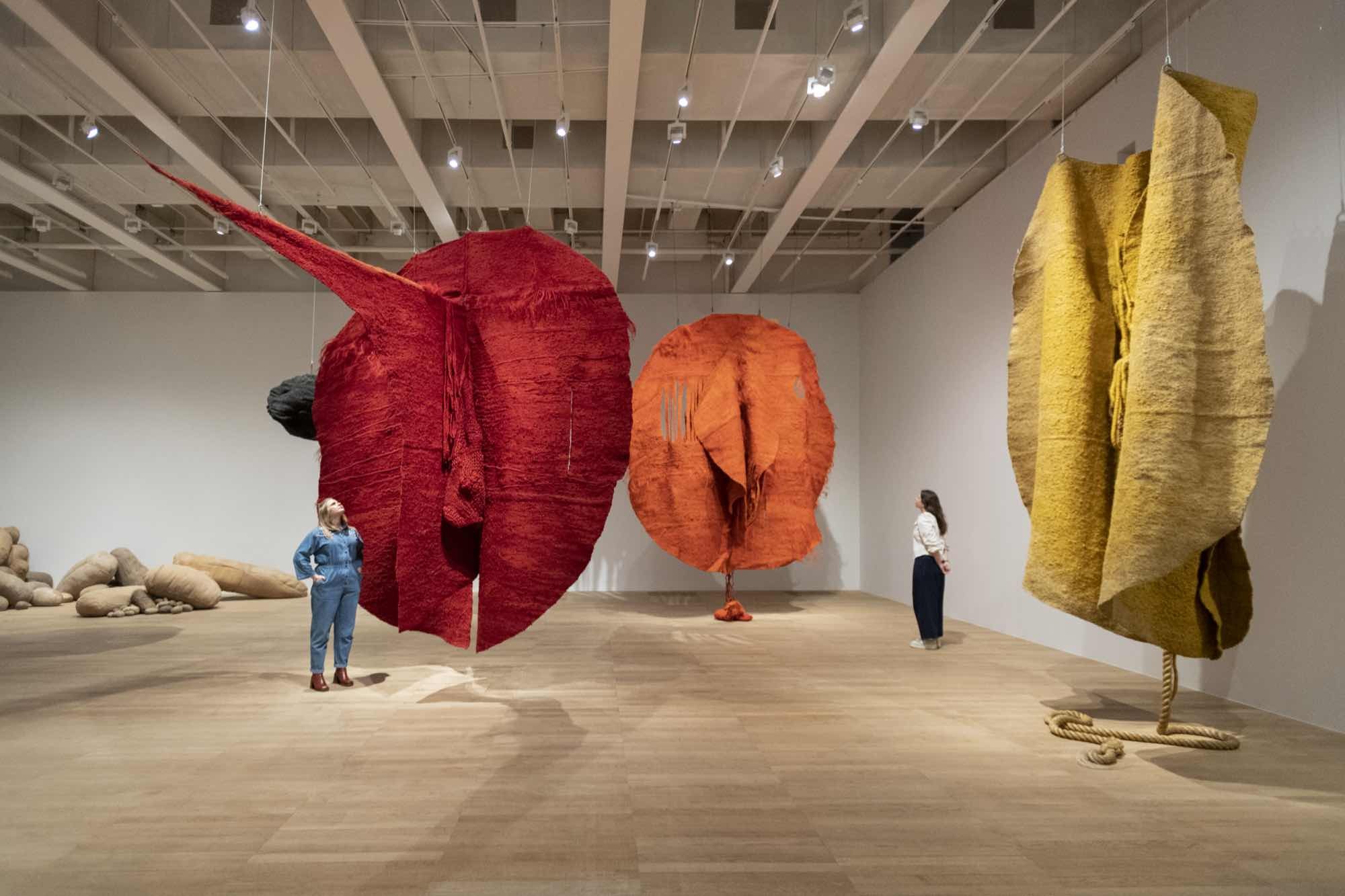
Magdalena Abakanowicz: Every Tangle Of Thread And Rope Installation View at Tate Modern 2022
Photo (c) Tate Photography, Madeline Buddo
Photo (c) Tate Photography, Madeline Buddo
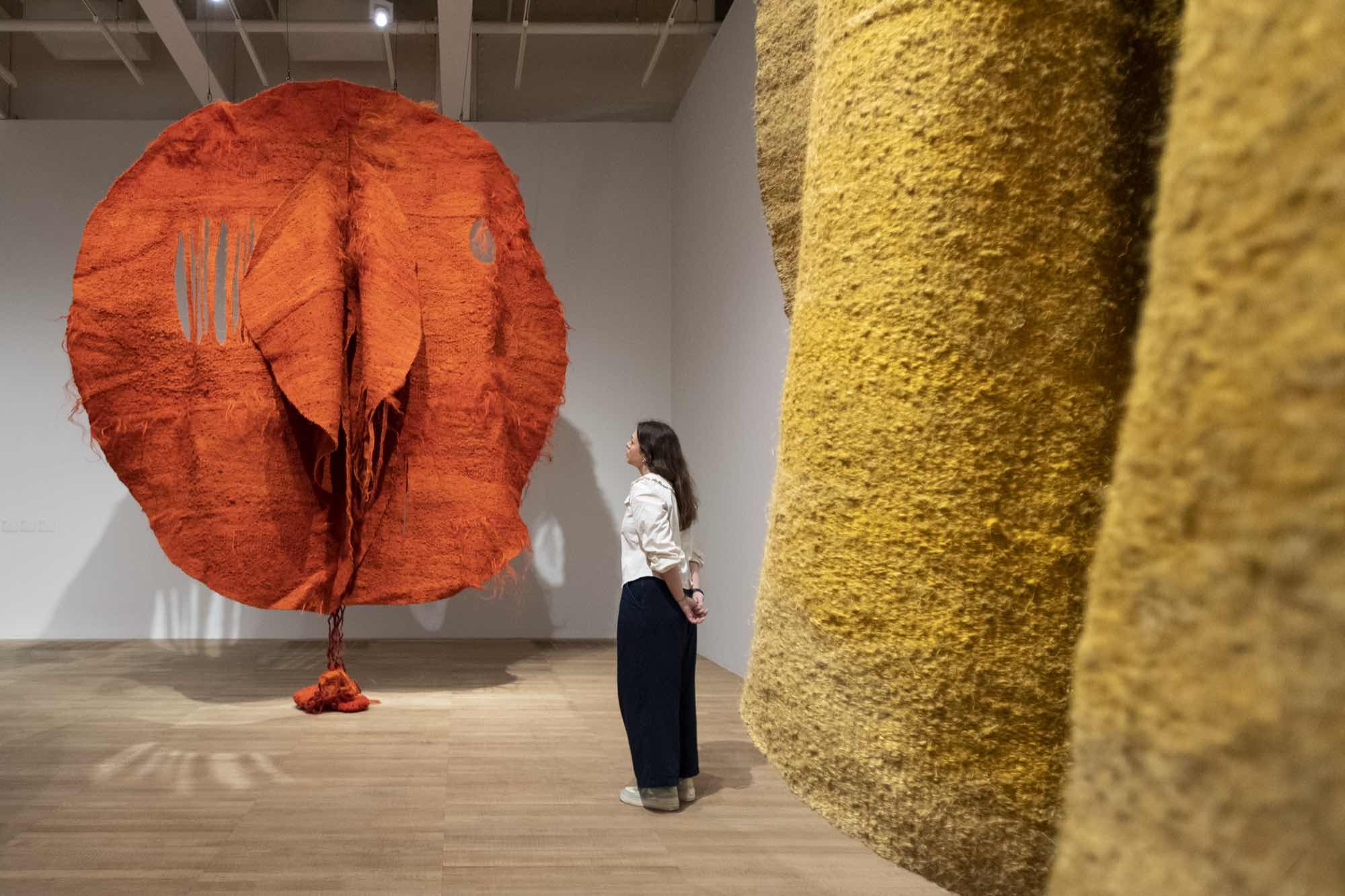
Magdalena Abakanowicz: Every Tangle Of Thread And Rope Installation View at Tate Modern 2022
Photo (c) Tate Photography, Madeline Buddo
Photo (c) Tate Photography, Madeline Buddo
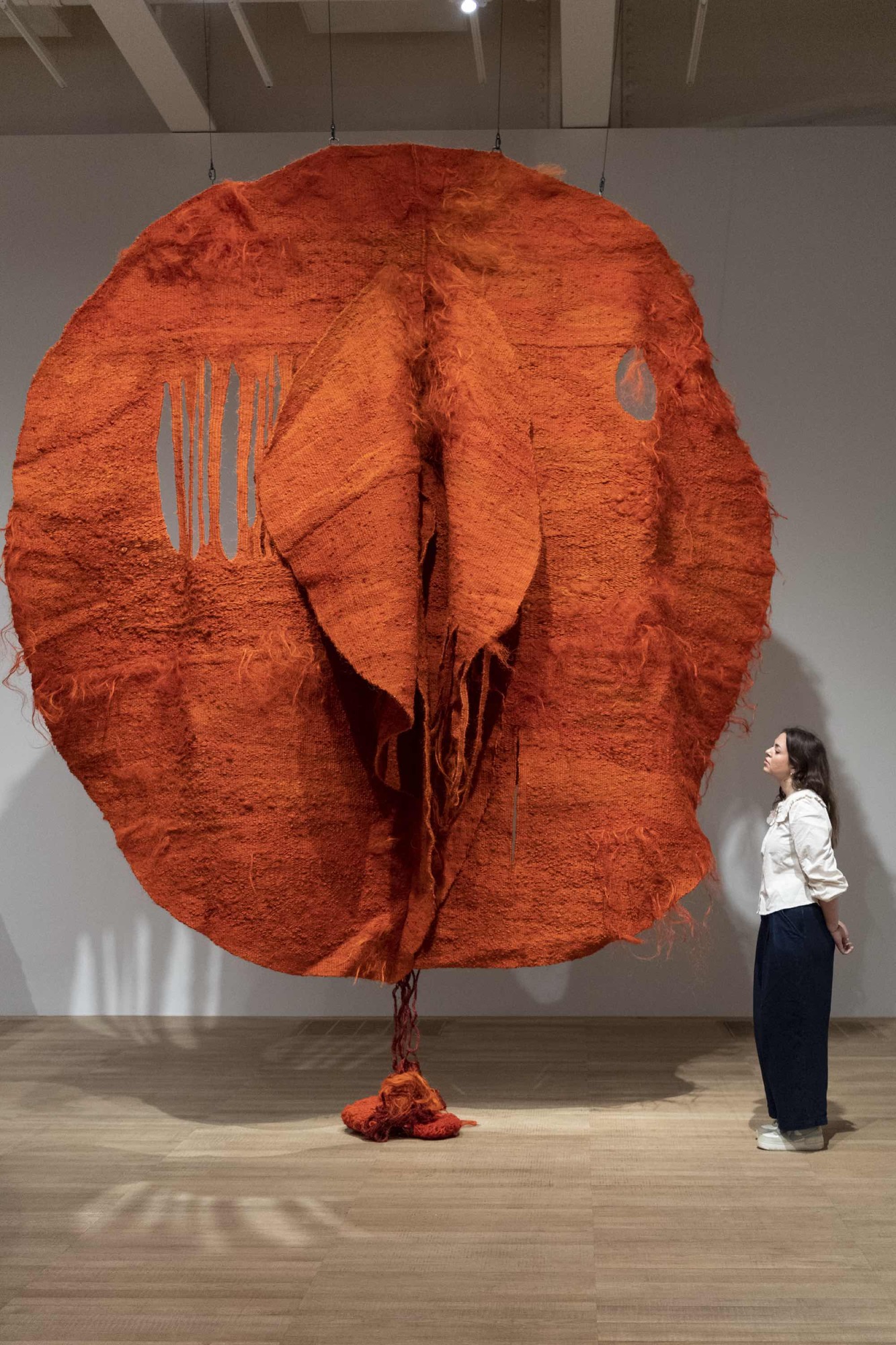
Magdalena Abakanowicz: Every Tangle Of Thread And Rope Installation View at Tate Modern 2022
Photo (c) Tate Photography, Madeline Buddo
Photo (c) Tate Photography, Madeline Buddo
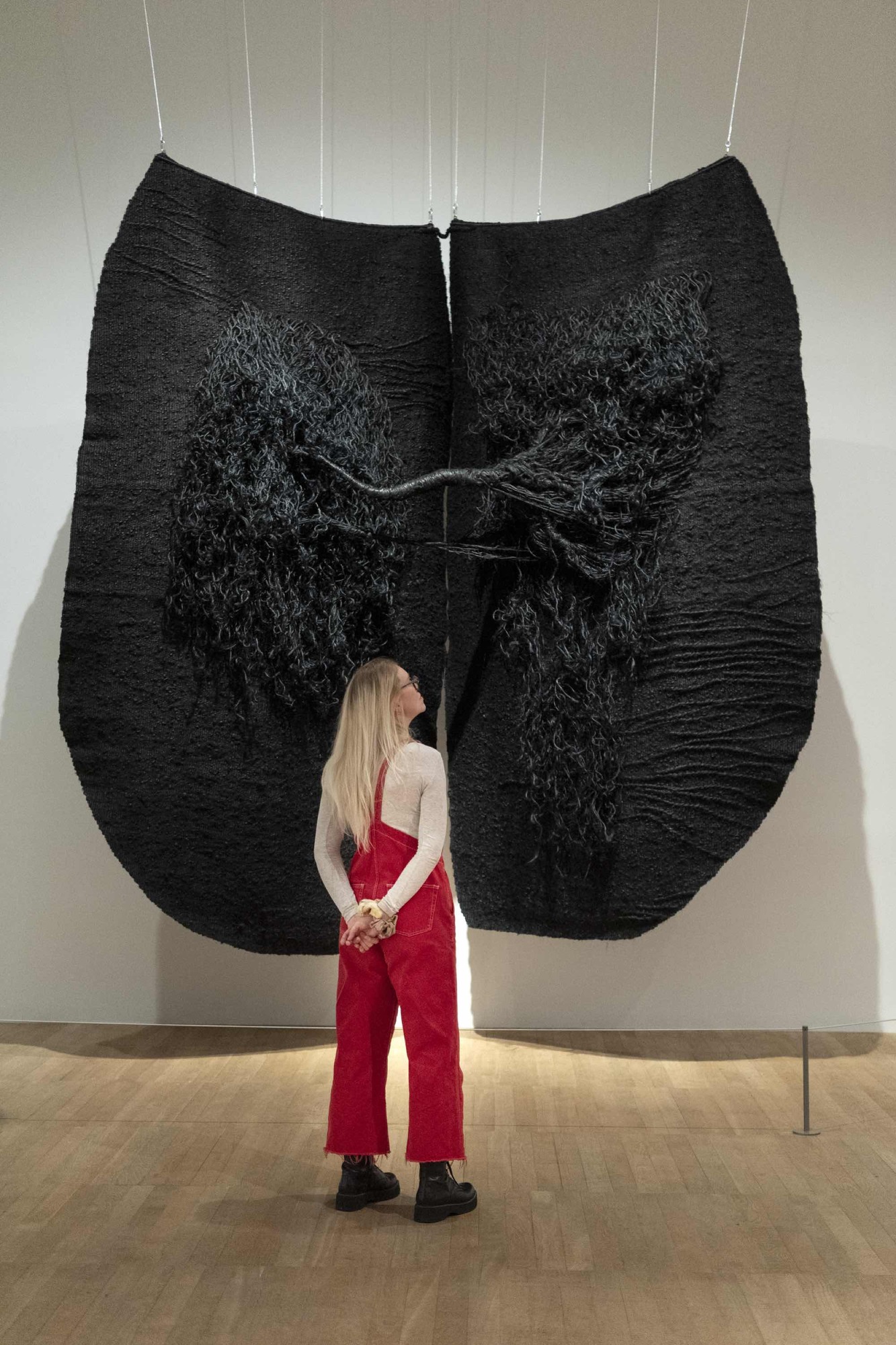
Magdalena Abakanowicz: Every Tangle Of Thread And Rope Installation View at Tate Modern 2022
Photo (c) Tate Photography, Madeline Buddo
Photo (c) Tate Photography, Madeline Buddo
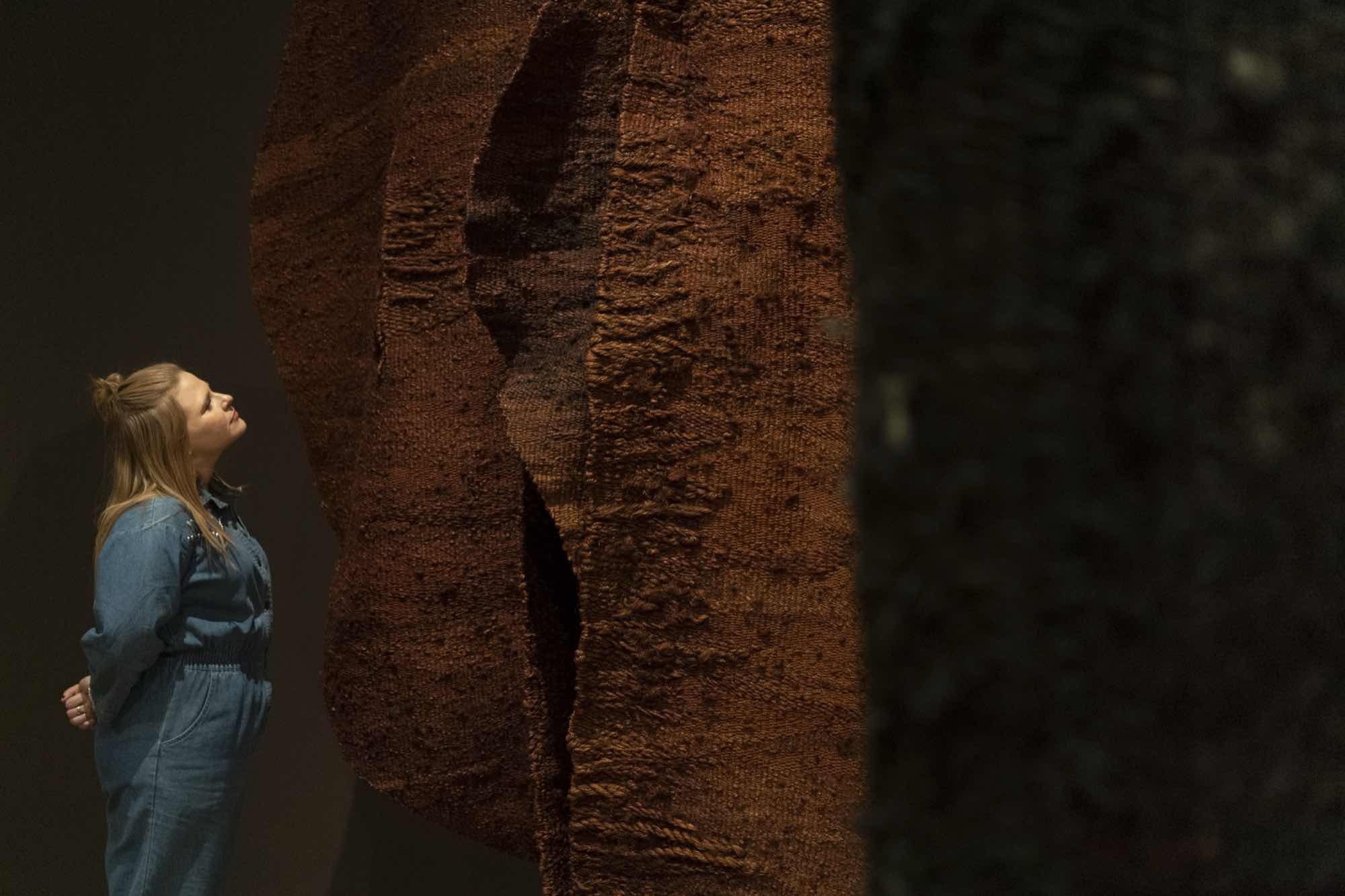
Magdalena Abakanowicz: Every Tangle Of Thread And Rope Installation View at Tate Modern 2022
Photo (c) Tate Photography, Madeline Buddo
Photo (c) Tate Photography, Madeline Buddo
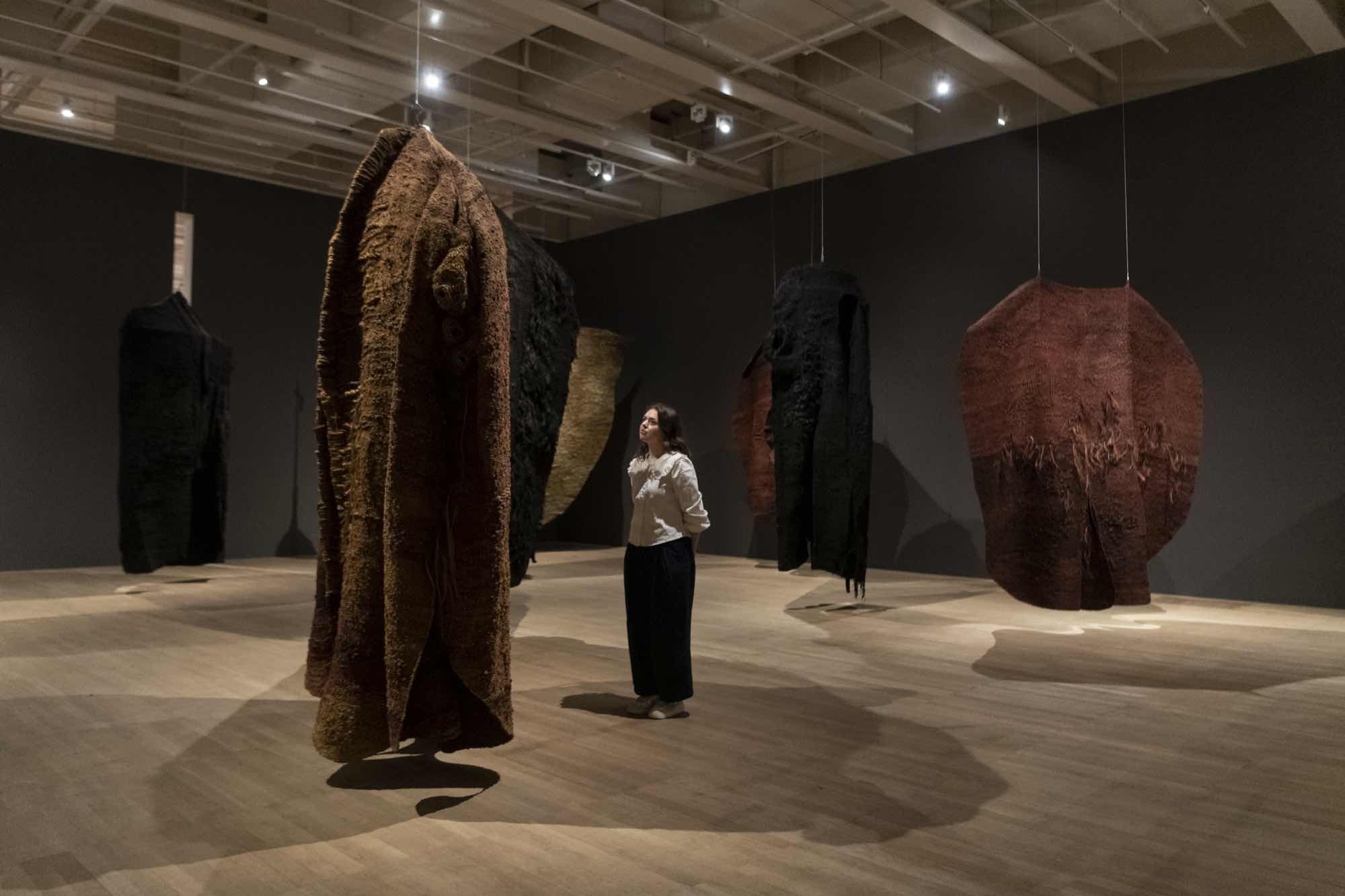
Magdalena Abakanowicz: Every Tangle Of Thread And Rope Installation View at Tate Modern 2022
Photo (c) Tate Photography, Madeline Buddo
Photo (c) Tate Photography, Madeline Buddo
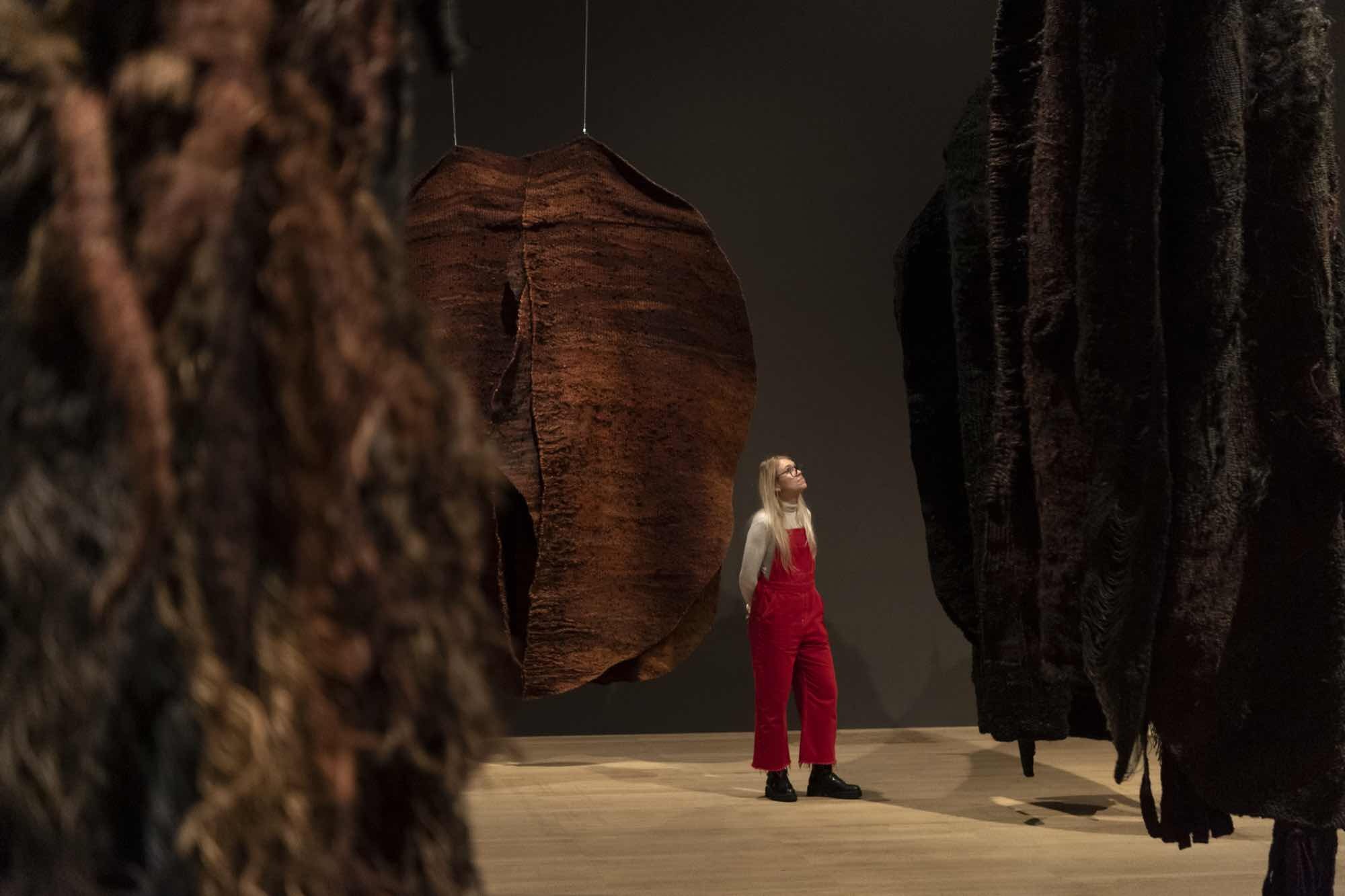
Magdalena Abakanowicz: Every Tangle Of Thread And Rope Installation View at Tate Modern 2022
Photo (c) Tate Photography, Madeline Buddo
Photo (c) Tate Photography, Madeline Buddo
“The Abakans were a kind of bridge between me and the outside world. I could surround myself with them; I could create an atmosphere in which I somehow felt safe because they were my world.” Magdalena Abakanowicz
Tate Modern offers a rare opportunity to explore an extraordinary body of work by Polish artist Magdalena Abakanowicz known as Abakans. Made of organic materials such as horsehair, sisal and hemp rope, these complex three-dimensional forms broke new ground for art in the 1960s and 70s. Bringing together 26 of these radical works for the first time in the UK, the exhibition presents a forest of towering sculptures, enabling visitors to explore their ambiguous forms and earthy scents.
With a career spanning over 50 years, Magdalena Abakanowicz (1930-2017) changed what it meant to be a sculptor and led the way for other artists working with fibre. Having grown up among the rural landscapes outside Warsaw, Poland, she took inspiration from the myth, folklore and spirits of the forest – themes that would eventually lead the artist to create new worlds through her work. Although she came of age during the traumatic events of World War II and later lived under the restrictions of an oppressive Communist regime, Abakanowicz was determined to engage on a global scale. Gaining international recognition by 1970 for her revolutionary installations, she went on to cross the Iron Curtain more than any other artist, participating in hundreds of exhibitions worldwide.
Choosing to reject the restrictive definitions of art and craft inherited from previous generations, Abakanowicz created trailblazing fibre installations that were a radical departure from the traditional tapestries produced in Western Europe. Deriving their name from the artist’s own family name, Abakans astounded critics when they were first presented in the late 1960s. Some measuring over five metres tall and displayed far from the stability of the gallery wall, these free-hanging woven forms did not appear as either sculpture or tapestry. Instead, they formed relationships in space and with the bodies of the viewers around them.
Honouring the artist’s wish for her Abakans to be seen and experienced as living works, visitors to Tate Modern will weave throughout a fibrous sculptural landscape. For the first time, Tate Modern charts the development of these ambitious works, exploring how Abakanowicz’s painted textiles from the mid-1950s transformed into the suspended, multi-faceted shapes of Abakan étroit 1967–8 and the monumental Abakan Red 1969, before eventually becoming full scale environments as seen in Set of Black Organic Forms 1974. Works such as Abakan Yellow 1970 and Abakan – Situation Variable II 1971 incorporate rope, spilling from the sculptures onto the floor. Rope became a key component of Abakanowicz’s organic environments, leading the viewer through gallery and city spaces in her works of the early 1970s.
Filled with richly evocative textures and shapes, the exhibition reveals a close connection between these raw forms and both the human body and earth around us. As described by Abakanowicz herself, “it is from fibre that all living organisms are built, the tissue of plants, leaves and ourselves. Our nerves, our genetic code, the canals of our veins, our muscles. We are fibrous structures”.
Magdalena Abakanowicz is curated by Ann Coxon, Curator, International Art, Tate Modern, Mary Jane Jacob, Independent Curator and Dina Akhmadeeva, Assistant Curator, International Art, Tate Modern.
Tate Modern offers a rare opportunity to explore an extraordinary body of work by Polish artist Magdalena Abakanowicz known as Abakans. Made of organic materials such as horsehair, sisal and hemp rope, these complex three-dimensional forms broke new ground for art in the 1960s and 70s. Bringing together 26 of these radical works for the first time in the UK, the exhibition presents a forest of towering sculptures, enabling visitors to explore their ambiguous forms and earthy scents.
With a career spanning over 50 years, Magdalena Abakanowicz (1930-2017) changed what it meant to be a sculptor and led the way for other artists working with fibre. Having grown up among the rural landscapes outside Warsaw, Poland, she took inspiration from the myth, folklore and spirits of the forest – themes that would eventually lead the artist to create new worlds through her work. Although she came of age during the traumatic events of World War II and later lived under the restrictions of an oppressive Communist regime, Abakanowicz was determined to engage on a global scale. Gaining international recognition by 1970 for her revolutionary installations, she went on to cross the Iron Curtain more than any other artist, participating in hundreds of exhibitions worldwide.
Choosing to reject the restrictive definitions of art and craft inherited from previous generations, Abakanowicz created trailblazing fibre installations that were a radical departure from the traditional tapestries produced in Western Europe. Deriving their name from the artist’s own family name, Abakans astounded critics when they were first presented in the late 1960s. Some measuring over five metres tall and displayed far from the stability of the gallery wall, these free-hanging woven forms did not appear as either sculpture or tapestry. Instead, they formed relationships in space and with the bodies of the viewers around them.
Honouring the artist’s wish for her Abakans to be seen and experienced as living works, visitors to Tate Modern will weave throughout a fibrous sculptural landscape. For the first time, Tate Modern charts the development of these ambitious works, exploring how Abakanowicz’s painted textiles from the mid-1950s transformed into the suspended, multi-faceted shapes of Abakan étroit 1967–8 and the monumental Abakan Red 1969, before eventually becoming full scale environments as seen in Set of Black Organic Forms 1974. Works such as Abakan Yellow 1970 and Abakan – Situation Variable II 1971 incorporate rope, spilling from the sculptures onto the floor. Rope became a key component of Abakanowicz’s organic environments, leading the viewer through gallery and city spaces in her works of the early 1970s.
Filled with richly evocative textures and shapes, the exhibition reveals a close connection between these raw forms and both the human body and earth around us. As described by Abakanowicz herself, “it is from fibre that all living organisms are built, the tissue of plants, leaves and ourselves. Our nerves, our genetic code, the canals of our veins, our muscles. We are fibrous structures”.
Magdalena Abakanowicz is curated by Ann Coxon, Curator, International Art, Tate Modern, Mary Jane Jacob, Independent Curator and Dina Akhmadeeva, Assistant Curator, International Art, Tate Modern.
